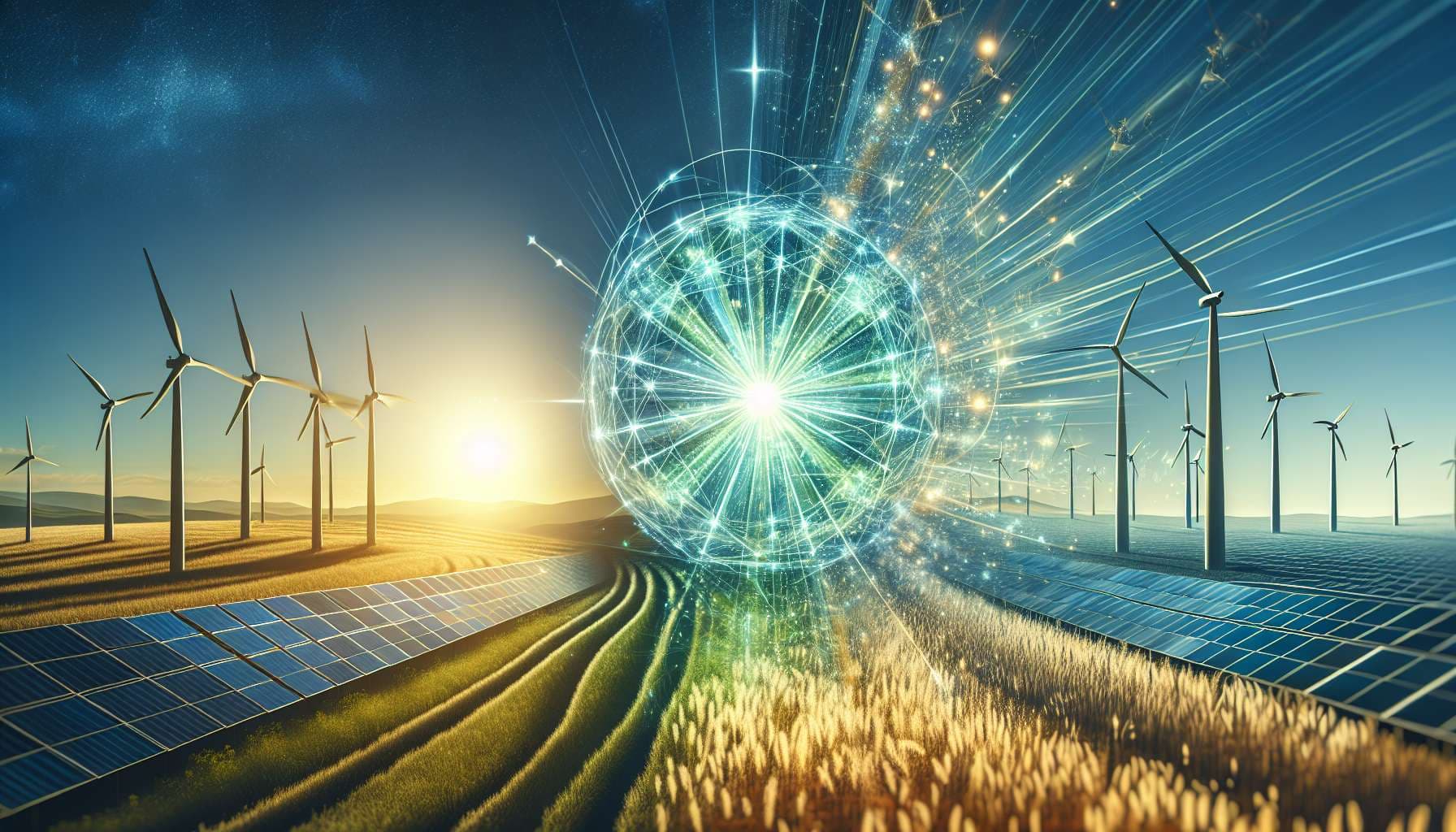
This question seeks to predict the advancement in renewable energy technology by the year 2030, focusing specifically on whether a new technology will emerge that significantly surpasses the efficiency of current leading solar or wind energy technologies. The term "significantly surpasses" refers to a marked improvement in efficiency, which could include factors such as energy conversion rates, cost-effectiveness, scalability, and environmental impact.
Criteria for Resolution:
Resolution as "Yes":
A new renewable energy technology will be introduced and operational by December 31, 2030.
The technology demonstrates a significant improvement in efficiency over the best existing solar or wind technologies. This could be evidenced by higher energy conversion rates, reduced production costs, increased scalability, or lower environmental impact.
The breakthrough is validated in a peer-reviewed scientific study or studies, confirming the technology's advancements and efficiency gains.
The technology must be more than a theoretical concept; it should have a practical application or a demonstrable prototype.
Resolution as "No":
No new renewable energy technology meeting the above criteria by December 31, 2030.
Existing solar or wind technologies remain the most efficient options without being surpassed by other new technologies.
There is a lack of peer-reviewed scientific validation for any claimed breakthroughs in renewable energy technology.
Note:
What is renewable energy:
Based on this link: https://www.un.org/en/climatechange/what-is-renewable-energy
Sustainability and Replenishment Rate: Renewable energy is energy derived from natural sources that are replenished at a higher rate than consumed.
Environmental Impact: renewable energy creates far lower emissions than burning fossil fuels.
Examples: Geothermal Energy, Space Solar Power, Fusion Energy, etc
It is always great to see new updates on ongoing research and development in renewable energy. If you have anything to share, please leave your comments. Thank you! 😁
Here is the latest info about the efficiency I have found from IRENA.
https://mc-cd8320d4-36a1-40ac-83cc-3389-cdn-endpoint.azureedge.net/-/media/Files/IRENA/Agency/Publication/2023/Aug/IRENA_Renewable_power_generation_costs_in_2022.pdf?rev=cccb713bf8294cc5bec3f870e1fa15c2

The cost efficiency of generating energy from solar power is quickly declining, but it is not yet the most cost-efficient.
The most cost-efficient from this graph is wind energy.
I think "natural sources" and "not replenished" are poorly defined. It won't matter with current energy sources, but on imagining a so far unknown energy source, it does.
All sources of energy are from nature, no? Oil is natural, strong nuclear force is natural, fusion is for sure natural if even the Sun does it?
Is fusion renewable? If not, what resource does it consume that is less renewable than, say, the surface of the Earth for solar and wind power?
It would help if you could give some examples of energy sources that would or would not fill your criteria. Those mentioned above are obvious candidates for clarification. How about geothermal (supposedly counts)? Space solar? Cold or otherwise atypical fusion? Artificial photosynthesis — would that be boring old solar or a new renewable energy source?
@scellus
Thank you for your comment!
You are right about the vagueness of the criteria.
I will update the criteria based on the definition from this link:
https://www.un.org/en/climatechange/what-is-renewable-energy
So, I think these are the two key points to being renewable energy:
1. Renewable energy is energy derived from natural sources that are replenished at a higher rate than they are consumed.
2. Generating renewable energy creates far lower emissions than burning fossil fuels.